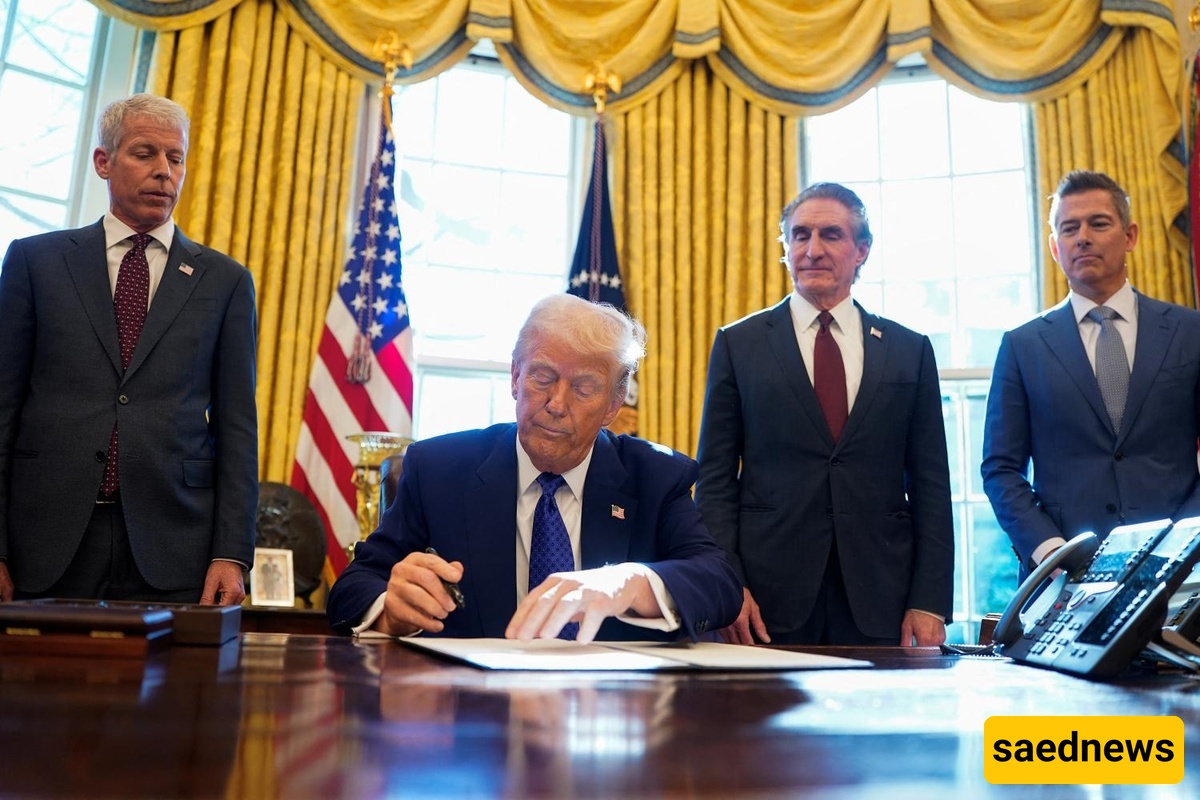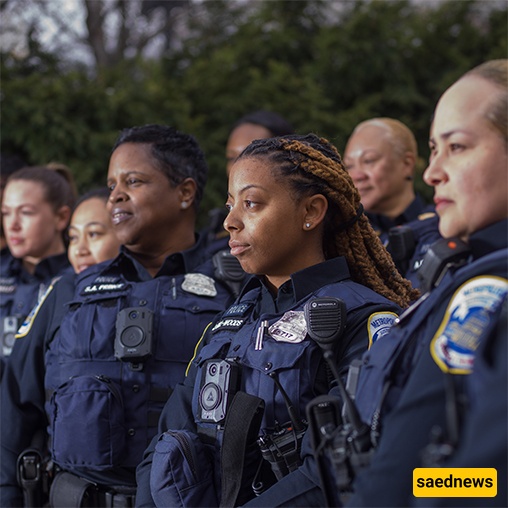SAEDNEWS: Just days after the Trump administration, citing a state of emergency, attempted to take full control of the Metropolitan Police Department of Washington, D.C., legal and political pressures forced the U.S. Department of Justice to backtrack and return command to the local police chief.

According to SaedNews, quoting CBS, in recent days, the U.S. capital witnessed one of the most unprecedented institutional confrontations between the federal government and local authorities. The Trump administration, citing a “crime and public safety emergency,” sought to assume full authority over the management of the Metropolitan Police and appoint a new commander from the Justice Department. This action was ostensibly justified by rising concerns over organized crime and security challenges, but from the outset, it sparked waves of protests and legal questions. Mayor Muriel Bowser and D.C. Attorney General Brian Schwalb deemed the decision a clear violation of D.C.’s self-governance law and immediately filed a lawsuit in federal court.

Subsequently, Federal Judge Anna Rises, in a public session, explicitly raised the possibility of issuing a ruling that could halt the enforcement of Trump’s order. These statements alone were enough to prompt the Justice Department to retreat and officially return command to Pamela Smith, the police chief appointed by the city administration. Nevertheless, the Justice Department managed to retain a limited concession; meaning that the Drug Enforcement Administration (DEA) remained as a coordinator on matters related to immigration, even though it no longer held direct command over the police forces.
These developments were only part of the story. Around the same time, Pam Bondi, the Attorney General under the Trump administration, announced a new immigration policy that effectively removed the city of Washington from the list of sanctuary cities. Under the new directive, police officers are required to report encounters with undocumented immigrants to federal agencies such as ICE. This fundamental change effectively dismantled one of D.C.’s longstanding city policies, which for years emphasized non-cooperation between local police and federal immigration authorities.
Reactions to this decision were swift and widespread. Civil rights activists and immigrant advocacy groups warned that such an action could destroy the fragile trust that had been built between the immigrant community and the police. Many experts emphasized that, as a result of this policy, immigrants would likely refrain from reporting crimes, cooperating in criminal investigations, or even approaching the police; a trend that would ultimately jeopardize public safety for all citizens. On the other hand, supporters of the Trump administration and some police unions described this policy as a “necessary step” to combat organized crime and human trafficking, believing that closer cooperation between the police and immigration agencies could exert greater pressure on illegal networks.
However, one key point that emerged was the conflict between the government’s narrative and statistical realities. While the White House cited the growth of “dangerous” crime in D.C. to justify declaring a state of emergency, official data indicated that violent crime rates had actually declined in recent months. This contradiction led many critics to question whether the administration’s main objective was truly combating crime, or rather creating a political display of authority ahead of upcoming electoral competitions.
This legal and political struggle once again highlighted Washington, D.C.’s unique status as a semi-autonomous city. According to the “Home Rule Act” passed by Congress, many local matters in D.C. must be managed by elected city officials. However, since the district is not formally considered a state, the federal government has certain powers to intervene in its affairs. This unique feature has consistently made D.C. a battleground between local independence and federal authority. The recent crisis arose precisely along this fragile line: can the federal government, citing a state of emergency, take full control of the police from the mayor, or would such an action violate the legal rights of the city’s residents?
Recent events have shown that the answer is not easily determined. On one hand, the Department of Justice managed to implement temporary changes in the command structure; on the other hand, political and judicial pressure was so strong that the initiative was ultimately abandoned. In the process, public trust in governmental institutions was also challenged. Many D.C. residents now question whether their security is the government’s main concern or merely a tool in national political games.
The social and civil consequences of this crisis continue. Washington’s immigrant community, which constitutes a significant portion of the city’s workforce and daily life, is among the most concerned. They fear that engagement with the police could come at the cost of family safety or risk of deportation. Meanwhile, local officials face a new dilemma: how can they maintain immigrants’ trust while simultaneously standing up to federal pressure? This question becomes even more critical ahead of the upcoming elections, as immigration and security are central issues in political debates and contests.
Ultimately, this crisis was not merely a temporary confrontation between the Department of Justice and the mayor’s office, but a tangible example of the larger struggle between federal power and local autonomy in the United States. Washington’s experience demonstrated that even in the heart of America, where democratic institutions are highly concentrated, tensions between the central government and local governance can flare quickly, with widespread implications for everyday life. Perhaps the most important lesson of this episode for American policymakers is that any effort to assert federal authority must be accompanied by legal precision, respect for local laws, and consideration of social consequences; otherwise, even if short-term gains are possible, long-term resistance from institutions and citizens is inevitable.

